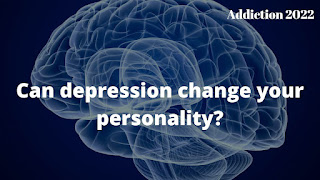What is the Psychology of Addiction?
Psychology
has played a prominent part in both addiction research and treatment. It is an
essential element of the interdisciplinary approach required by the
'biopsychosocial' conception. Cognitive theory-based, psychodynamic, and
transtheoretical methods are the three primary categories of applied psychology
in the field of addictions. This contribution contains brief summaries of the
most common models.
The Dynamic
Model of Relapse from the learning theory field and the PRIME theory of
motivation from the transtheoretical area are two important recent
breakthroughs in addiction psychology. Both of these developments are
deviations from conventional models' linear two-dimensional perspective in
favour of multidimensional non-linear models that use theories like chaos
theory and catastrophe theory in the modelling process. These techniques are
similar to those used to describe and anticipate complicated phenomena like
weather patterns in terms of explanations and predictions. Because both of
these innovations are new, they have yet to be put to the test in the field.
The models' comprehensive nature offers a lot of attaining better our
understanding of addiction
and developing effective interventions.
Alcoholism
counsellors, Addiction Issues, and the Central Committee on Alcohol paid close
attention to the medical and biochemical elements of Jellinek's theoretical
thoughts about "alcohol addicts." If alcoholism is viewed as largely
a medical condition, then its victims might be viewed as medical patients who require
treatment rather than punishments. In terms of therapy and insurance coverage,
they would be able to get a better bargain. Throughout all costs, the concept
of alcoholics as "mad people" was to be avoided and denied. Too many alcoholics
were sent to psychiatric institutions because they seemed psychotic while
inebriated, and there were no alcoholism-specific treatment regimens. There
were almost no treatment models available for patients with alcoholism who did
not have any premorbid or accompanying psychiatric illnesses. This need
provided a fertile ground for developing a humanistic and compassionate
treatment for alcoholics.
.png)
.png)
.png)

Comments
Post a Comment